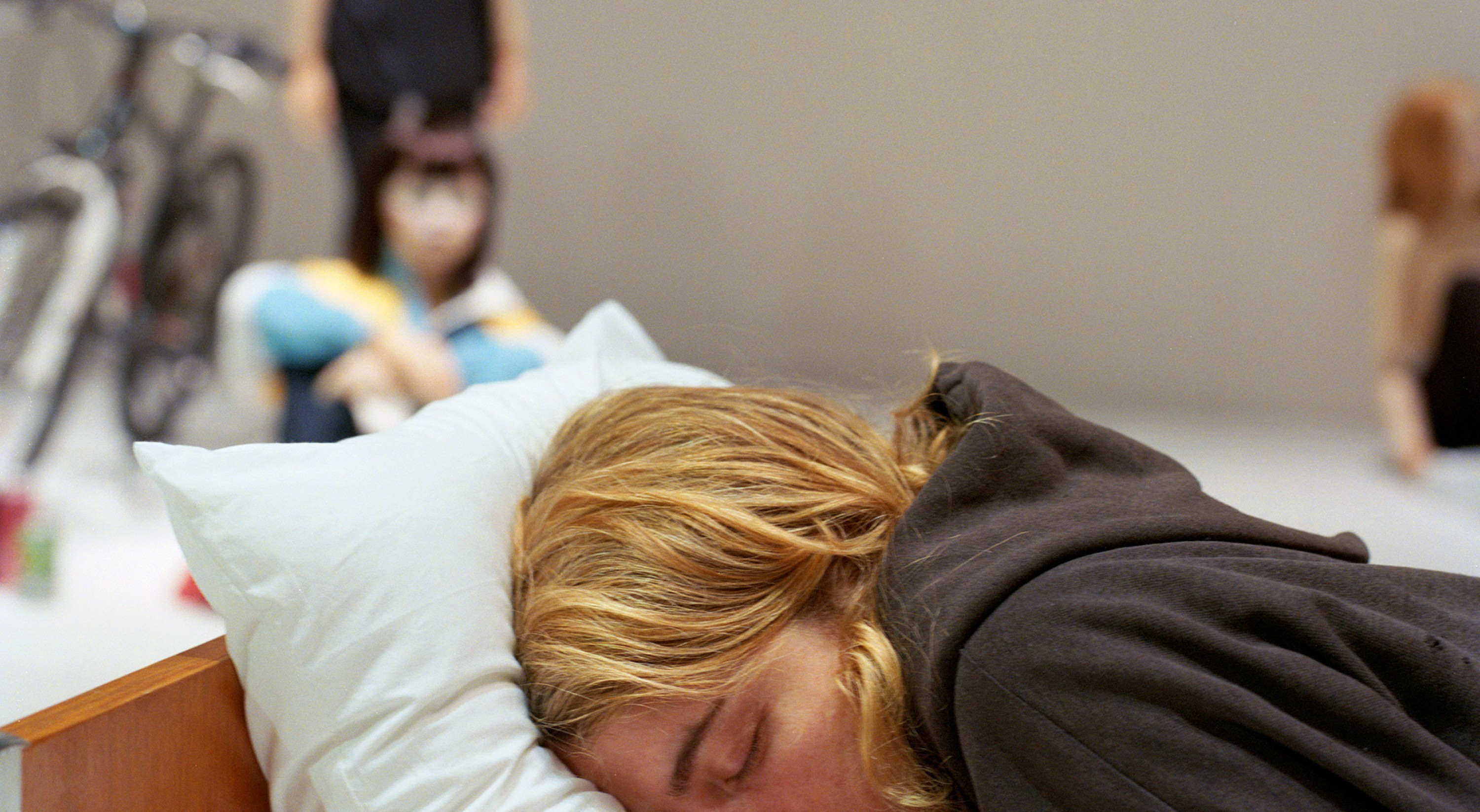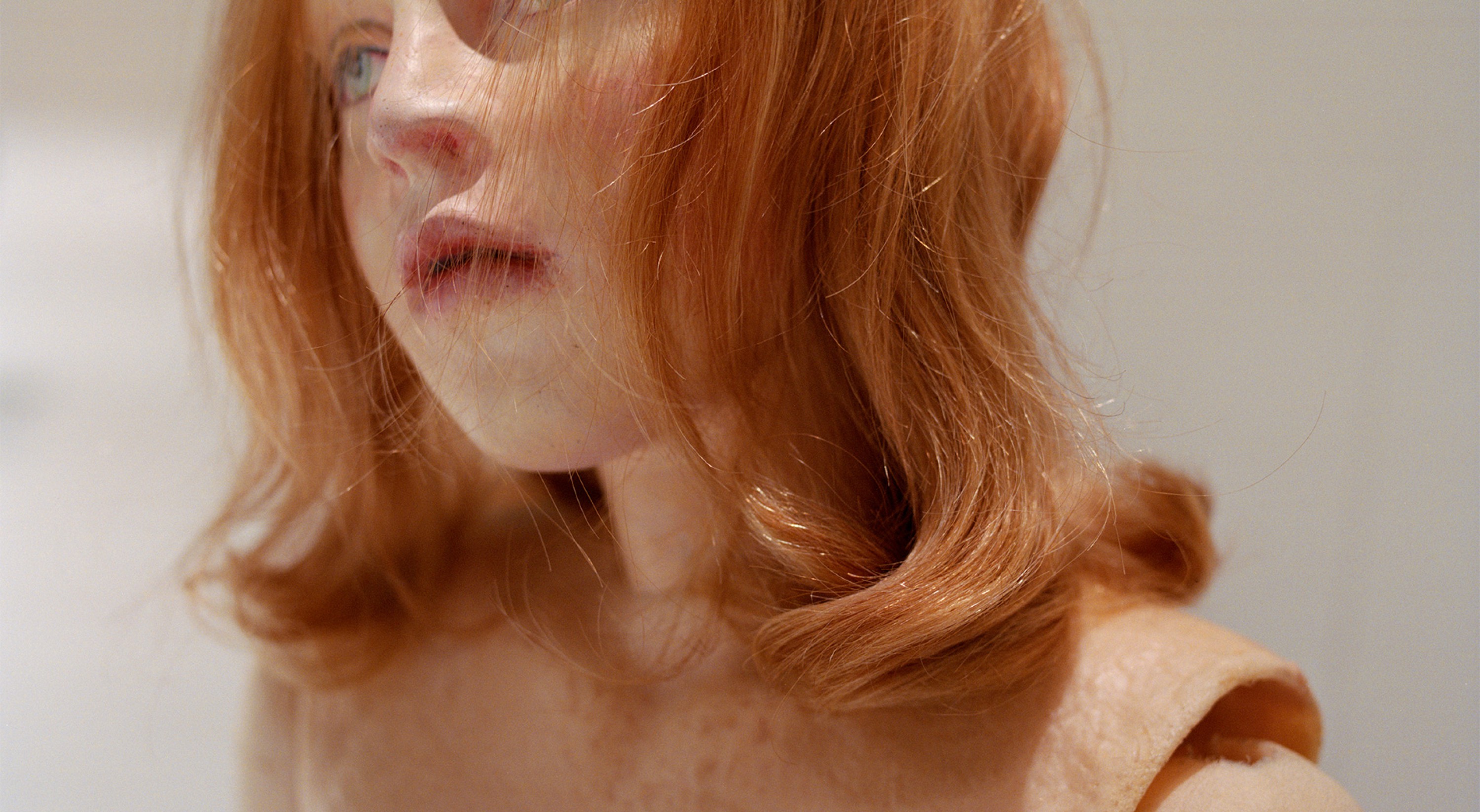Gisèle Vienne
L’Étang by Robert Walser
Conceived, directed, scenography and dramaturgy by, Gisèle Vienne
Based on the original work Der Teich (The Pond) by Robert Walser
With Adèle Haenel, and Ruth Vega Fernandez
Lighting, Yves Godin
Dramaturgy, Gisèle Vienne
Sound design, Adrien Michel
Musical direction, Stephen F. O’Malley
Original music, Stephen F. O’Malley, and François J. Bonnet
Outside eye, Dennis Cooper, and Anja Röttgerkamp
Stage design collaboration, Maroussia Vaes
Doll design, Gisèle Vienne
Doll construction, Raphaël Rubbens, Dorothéa Vienne-Pollak and Gisèle Vienne in collaboration with Théâtre National de Bretagne (Rennes)
Set construction, Nanterre-Amandiers, centre dramatique national
Decor et accessories, Gisèle Vienne, Camille Queval, and Guillaume Dumont
Costumes, Gisèle Vienne, Camille Queval, and Pauline Jakobiak
Make-up and wigs, Mélanie Gerbeaux
Festival d’Automne à Paris is a co-producer of this show. In association with Théâtre Paris-Villette and Festival d’Automne à Paris
Produced by DACM ; and Compagnie Gisèle Vienne
Coproduced by Nanterre-Amandiers, centre dramatique national ; Théâtre National de Bretagne (Rennes) ; Le Maillon, Théâtre de Strasbourg – Scène européenne ; Holland Festival (Amsterdam) ; Fonds Transfabrik – Fonds franco-allemand pour le spectacle vivant ; Centre Culturel André Malraux – Scène Nationale de Vandœuvre ; Comédie de Genève ; La Filature, Scène nationale (Mulhouse) ; manège – Scène Nationale – Reims ; MC2 : Grenoble ; Ruhrtriennale (Bochum) ; TANDEM, scène nationale (Douai-Arras) ; Kaserne Basel ; International Summerfestival Kampnagel (Hamburg) ; Théâtre Garonne – scène européenne (Toulouse) ; CCN2 – Centre chorégraphique national de Grenoble ; BIT Teatergarasjen (Bergen) ; Black Box teater (Oslo) ; and Festival d’Automne à Paris
Théâtre Paris-Villette ; La Villette (Paris) ; and Festival d’Automne à Paris are associate producers of this show
With support from CND Centre national de la danse (Pantin), La Colline – théâtre national (Paris), and Théâtre Vidy-Lausanne
With thanks to Point Ephémère (Paris) for the availability of the space and to Playroom, SMEM (Freiburg) for the sound-studio access.
Thanks to Etienne Bideau-Rey, Nelson Canart, Patric Chiha, Zac Farley, César Van Looy, and Jean-Paul Vienne
With support from Dance Reflections by Van Cleef & Arpels
Partnership with France Culture
An adaptation of a short piece of writing by the Swiss writer Robert Walser, l’Étang throws light upon the intricate workings of a filial love story. The various roles are played by two actresses Adèle Haenel and Ruth Vega Fernandez.
L’Étang is a family drama which differs from the rest of the work of Robert Walser (1878-1956) in that it is a private text that he gave to his sister, and is the only work her wrote in Swiss-German. It recounts the story of a child who feels unloved by his mother and, at the height of her despair, fakes her own suicide in order to find out if her mother really loves her. What are the issues that are at stake here? What are the forces at work between the words on the page and the onstage action? What are the different strata of language, ranging from elements of narration to the spoken word, and which we may or may not be able to formulate, which comprise our perception, comprehension and exchanges? These questions, present at the core of Gisèle Vienne’s work for some time now, are tackled via the mise en abyme of the writing of Robert Walser and its staging: Adèle Haenel and Ruth Vega Fernandez play, one and two roles respectively, whist lending their voices to the other characters, represented by dolls. On the stage, the eight scenes and seventeen bodies are permanently on display. Thus, several levels of perception of reality and temporality, interiority and exteriority are brought into existence. Raising questions about theatre and family-based convention, L’Étang looks, in particular, into the question, the essential aspect of which is deceiving, of what we see – that is, the shared representation of reality and, social norm.
This piece has been created in memory of Gisèle Vienne’s long-term collaborator, the actress Kerstin Daley Baradel, who passed away in 2019, and with whom the director and her team developed this work side by side.

